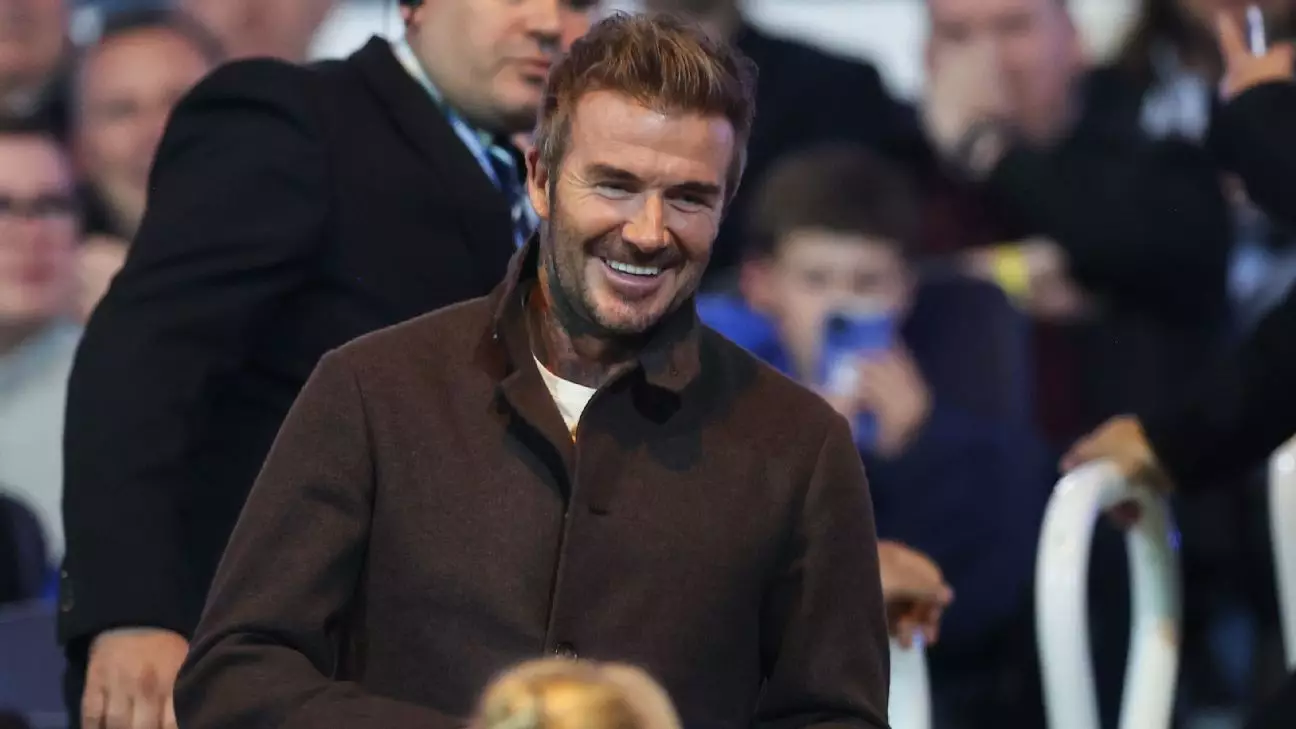Manchester United, once hailed as a titan of English football, has witnessed a dramatic decline since Sir Alex Ferguson departed in 2013. The club’s illustrious history boasts a string of Premier League titles, but the void left post-Ferguson has been palpable. For the first time, in the last season, they found themselves languishing in eighth place—an all-time low in the elite tier of English football. David Beckham, a former star and ardent supporter, recently opened up on the significant changes needed to rejuvenate the spirits of not only the organization but also its legion of loyal fans.
In a candid conversation with his former teammate Rio Ferdinand for the “Rio Ferdinand Presents” podcast, Beckham articulated a vital need for transformation within the club’s management structure, particularly following the involvement of Sir Jim Ratcliffe as a minority owner. Beckham emphasized that a fresh perspective was overdue and that genuine care for the club’s well-being must manifest through actionable changes. According to Beckham, football isn’t just a game; it embodies a culture, a heritage, and a connection that unites the fans and the team. Acknowledging Ratcliffe’s successful business acumen, Beckham highlighted the importance of having owners who genuinely care for the club’s legacy and who are passionate about making a meaningful difference.
Despite Manchester United’s ongoing struggles, Beckham remains hopeful. The monumental changes in leadership, bolstered by Ratcliffe’s intended reforms, have been met with cautious optimism among fans. Beckham is well aware that rebuilding a football club’s fortunes doesn’t occur overnight; as he pointed out, patience is essential. Yet, he conveys a collective yearning among fans to rediscover the glory days when the club dominated both domestically and in Europe. They want a revival, but as Beckham astutely states, significant transformation is a slow process.
While Manchester United continues to wrestle with its identity and results on the pitch, David Beckham has experienced resounding success managing Inter Miami. The team has already clinched the Supporters’ Shield, recognizing it as the best Regular Season team in Major League Soccer (MLS). Furthermore, with aspirations of breaking the all-time points record, Beckham’s strategic decisions as an owner and executive have proven groundbreaking. The pivotal signing of Lionel Messi, a fixture in the world of elite football, has attracted attention and re-established Miami as a formidable force.
One of the most critical takeaways from Beckham’s time under Ferguson has been the fundamental principle of recruitment. In his conversation, Beckham reflects on Ferguson’s approach, emphasizing that merely acquiring star players doesn’t guarantee success; rather, the focus should be on fitting the right players into the system. This insight highlights the importance of fostering a cohesive team environment where each player, regardless of their individual prestige, complements the other’s strengths and weaknesses. Beckham is acutely aware of the delicate balance needed to cultivate both talent and teamwork—a lesson that should serve as a guiding principle at Manchester United’s helm.
Beckham’s endorsement of Ratcliffe and his desire for progressive change underscore a pivotal juncture for Manchester United. The past years have tested the loyalty of fans, and while the road to recovery is fraught with challenges, the potential for resurgence is tangible. As the club navigates this transition, it will require not just leadership committed to change, but also an unwavering support from the faithful fans whose passion fuels the essence of Manchester United. In essence, the quest to restore the club to its former glory demands a collective effort—one that intertwines management vision with the enduring spirit of its supporters. As Beckham rightly notes, the return to prominence might take time, but the goal will be well worth the wait.

Leave a Reply